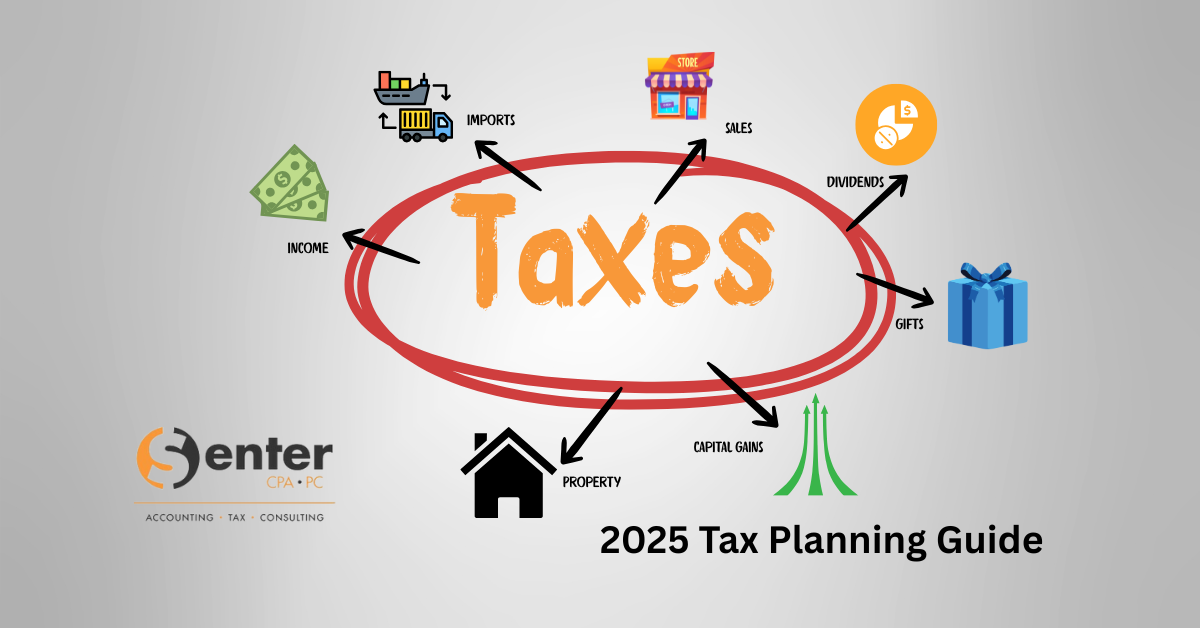We always like to say “Don’t be charitable ONLY for the tax deduction.” However, we also know there is an incentive to do so, especially when receiving a tax deduction. That doesn’t mean we don’t want you to maximize your tax benefit; we most certainly do. Admittedly, lots of fun can be had with tax planning and charitable giving, all while helping those in need. A few of strategic examples would be combining charitable deductions for two years into one, donating appreciated property and/or funding a Donor Advised Fund to maximize the benefits.
Deduction
Generally speaking, you would need to itemize to be able to deduct charitable donations, however there are changes to this rule as you will notice below. The deductible amount is normally the fair market value of the items donated. More rules on what is the fair market value can be found in Publication 561.
Qualifying Organizations
In general, a qualified organization would be one qualified under section 170(c) of the Internal Revenue Code (IRC). Those are typically entities that are organized and operated exclusively for charitable, religious, educational, scientific, or literary purposes. Use the IRS’s Tax Exempt Organization Search tool to do your due diligence, research and check to ensure they are a qualified organization.
A Few of the Basics
- Need a bank record, statement from the donee or other record for ALL cash contributions that shows name, date and amount such as payroll deduction record
- Cash contributions of $250 or more, you must have an acknowledgement from the qualified organization of donation
- Non-cash donations less than $250, you should keep details of the qualified organization that shows their name, date, location and description and value of the property donated
- Non-cash donations of $250 – $500, you must also receive and keep an acknowledgement from the organization along with those above
- Non-cash donations of $500 – $5,000, you should have those items above plus how you received the property (i.e. purchased, gift, etc.) the date you received the property, the cost or adjusted basis
- Non-cash donations over $5,000, you should have the items above, but also obtain a qualified written appraisal of the donated property
- You cannot deduct the value of anything you receive in return i.e. those $5 coffee mugs you may get with your donation
- When you donate to colleges for the right to purchase tickets, you can only deduct 80% of the contribution
- You cannot deduct volunteer services, but you CAN deduct out of pocket expenses such as materials, supplies, mileage, parking etc.
Not Able to Itemize?
No sweat. If you noticed the 2020 DRAFT form 1040 there is a new line (line 10b) “Charitable contributions if you take the standard deduction,” which gives you the ability to deduct up to $300 of charitable contributions, regardless if you are able to itemize or take the standard deduction. Under the CARES act a provision was made to allow people to deduct $300 of CASH contributions to qualified charitable organizations 501(c)(3). This is reduction of your income.
A Few Changes Due to COVID-19:
- Temporary above-the-line deduction of cash contributions up to $300
- Temporary suspension of limitations on cash contributions i.e. qualified cash contributions are not limited to 60% of Adjusted Gross Income (AGI) but can be deducted up to 100% of AGI for 2020
- Temporary increase in limits on contributions of food inventory i.e. business that were once limited to 15% of net income had now been raised to 25% of net income for 2020
- Here’s the full text of the CARES Act (I knew you’d want to read it)
Be charitable, your community needs you during this time. COVID-19 has created challenges for many and now is the time to step up and fill the void. Donate your time, food from your pantry or old clothing from your closet or donate money if you are able. Don’t forget that tax deduction either!
Senter CPA: Tax Planning & Preparation
Our goal is to be part of your team, help save tax dollars and achieve your goals. We are your trusted tax preparers and CPA in Clarkston, Michigan. If you are interested in discussing how you can best plan your charitable endeavors for tax purposes, please give us a call at 248-934-0550 or click the contact us button below. We look forward to hearing from you.














